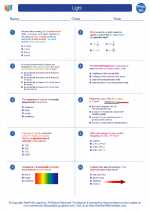Immune Function
Immune function refers to the body's ability to protect itself against harmful pathogens such as bacteria, viruses, and other foreign substances. The immune system is a complex network of cells, tissues, and organs that work together to defend the body.
Components of the Immune System
The immune system consists of several key components:
- White blood cells (leukocytes): These cells are the primary defenders of the body and include various types such as lymphocytes, neutrophils, and macrophages.
- Antibodies: These are proteins produced by the immune system to help recognize and neutralize harmful substances.
- Lymphoid organs: These include the thymus, spleen, and lymph nodes, which play a vital role in immune function.
- Complement system: A group of proteins that work together to destroy pathogens.
Immune Response
When the body is exposed to a pathogen, the immune system mounts a response to eliminate the threat. This response involves several stages:
- Recognition: Immune cells recognize the presence of a foreign substance.
- Activation: The immune cells become activated and start to multiply to combat the pathogen.
- Effector phase: The immune cells work to eliminate the pathogen from the body.
- Memory phase: Some immune cells remain in the body to "remember" the pathogen, providing long-term immunity.
Factors Affecting Immune Function
Several factors can influence immune function, including:
- Nutrition: A balanced diet is essential for a healthy immune system.
- Stress: Chronic stress can weaken the immune response.
- Exercise: Regular physical activity can boost immune function.
- Age: Immune function tends to decline with age.
Disorders of the Immune System
When the immune system malfunctions, it can lead to various disorders such as autoimmune diseases (e.g., rheumatoid arthritis, lupus) and immunodeficiency disorders (e.g., HIV/AIDS).
Study Tips
To effectively study immune function, consider the following tips:
- Understand the different types of immune cells and their functions.
- Learn about the process of immune response and the stages involved.
- Explore the impact of lifestyle factors on immune function.
- Be familiar with common immune system disorders and their characteristics.



